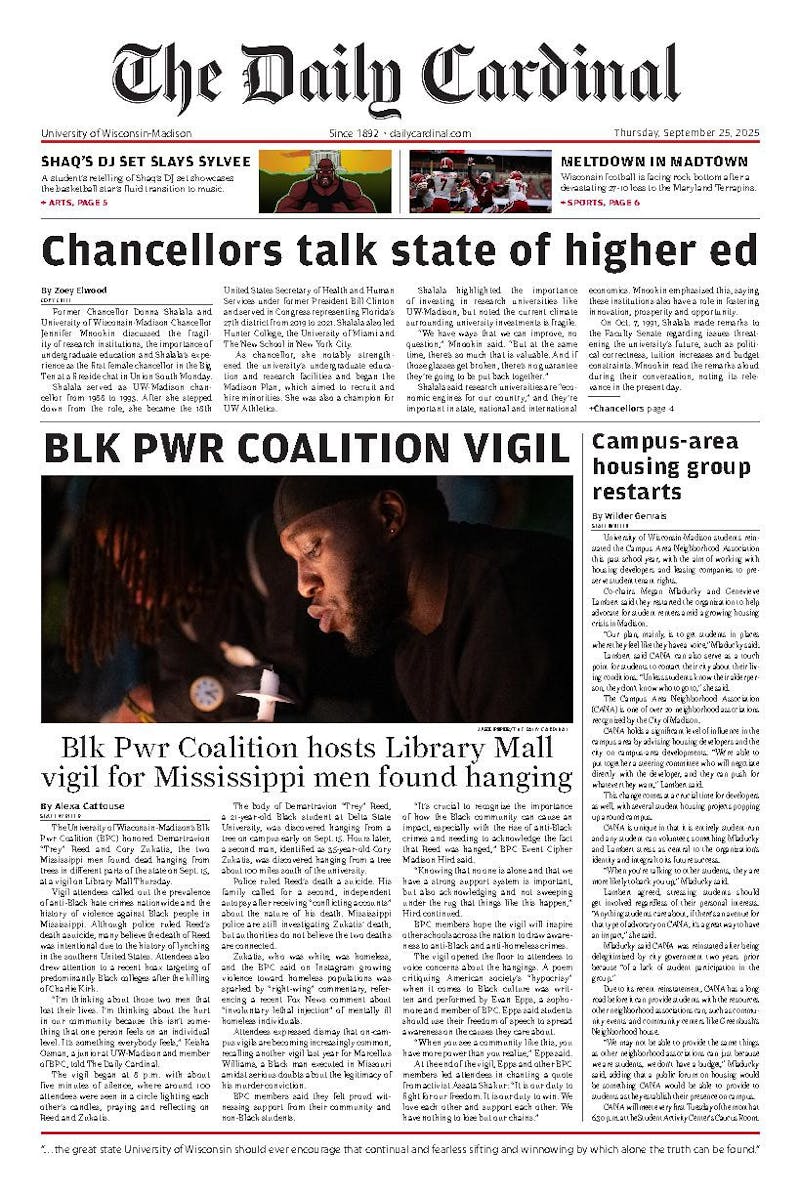If they had control of some kind of time machine, or advice from a fortune-teller, it would’ve been difficult for the WUD Committee to pick a better time to show “Selma” at the Marquee. As we all know, the current conversations on race are some of the most emphatic and important in recent memory. With the current discussion, a movie that chronicles the epic five-mile march from Selma to Birmingham lead by Martin Luther King Jr., is an important one to see. Not only because is it a great film, but because of the questions it asks and the ones it answers.
The film is called “Selma” and not “King” because it focuses on that march and the behind-the-scenes tactics of the movement. The act was meant to force the U.S. government to pass a bill that would eliminate the illegal practices Southern governments were using to keep blacks from voting. In the film, a number of major scenes are the confrontations between King and then-President Lyndon B. Johnson. These powerful scenes, between two of the most powerful men of their time, are some of the wonderfully acted scenes in the movie. The entire cast plays their respective characters very well, but David Oyelowo as Dr. King, as expected, steals the show. Oyelowo emulates King flawlessly, perfecting his booming voice in the speech scenes, some of which gave me chills. However his interpretation goes farther than that. Oyelowo creates a King that we rarely saw or heard about, one that is tired and at times weak, whose faith falters and who even doubts his own movement. This humanity is the most important and impressive thing in the movie. We see King at his worst, arguing with his wife and fellow activists, unsure of himself and his actions. Even with all of this pressure on him, King works with strategy and defiance, and a strength and expertise that’s nothing short of unbelievable.
The humanity we feel that connects us to the characters and their endeavor is created by the combined aspects of the film. The film is not an epic, by any stretch. It focuses on the Selma march and the people surrounding it, which makes the characters and their performances that much more important. Most scenes happen within a room or two; there are no wide-panning shots and the whole film seems focused very intently on the people themselves. The people, along with their faults and weaknesses, are on full display here, which feels right. The movie doesn’t try to capture the importance of Dr. King’s life, but instead the importance of one of his movements.
Dr. King states late in the film, “I’m just a man… no different from anyone else,” and that’s what the movie is about. He’s a normal man that felt it was his responsibility of leading one the most important movements of all time. In a time of uncertainty regarding race in our nation, this movie is important. It shows us a time that must not be allowed to repeat itself, and through its struggle, the power of one man is revealed. All people have the power to stand up for what is right and what they believe in, and they can do so in calm, nonviolent protests that make an enormous amount of impact. But maybe the greatest importance of the film is that, although one man may stand first and lead us, we all have the responsibility to stand with him.
3.5 out of 4 stars





